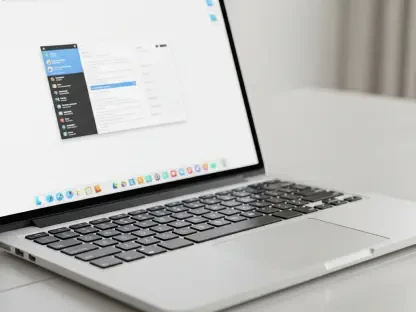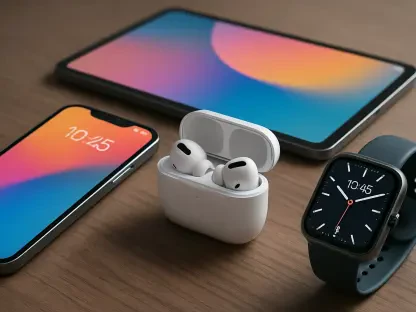When it comes to mobile technology and its expanding frontiers, few voices carry as much weight as Nia Christair. With a deep background in mobile gaming, app development, device and hardware design, and enterprise mobile solutions, Nia has a unique perspective on how mobile platforms are reshaping the tech landscape. Today, we dive into Google’s bold announcement to bring Android OS to PCs next year, exploring what this means for users, businesses, and the broader tech ecosystem. Our conversation touches on the fusion of Android and ChromeOS, the potential for AI innovation, the target markets for this new platform, and the challenges and opportunities it presents for enterprises.
What can you tell us about Google’s recent announcement to launch Android OS for PCs next year?
Google’s plan to introduce Android OS on PCs in 2025 is a significant step forward. At the Snapdragon Summit in Maui, a senior executive highlighted that this move builds on the success of ChromeOS and Android tablets, aiming to create a seamless laptop experience. It’s about reimagining the laptop form factor by integrating Android’s technology with ChromeOS’s user-friendly design. Essentially, they’re re-baselining ChromeOS on Android tech to make laptops feel like a natural extension of the Android ecosystem.
How does Google envision this platform accelerating AI advancements in laptops?
The core idea is to bring Android’s rapid AI innovations to the laptop space. Android has been a hotbed for AI development, especially with on-device processing for low-latency, secure experiences. By embedding this into PCs, Google wants to leverage hardware like Qualcomm’s neural processing units to optimize AI tasks right on the device. This could mean smarter apps, better personalization, and faster responses without relying heavily on the cloud.
What benefits does Google see in connecting laptops more deeply with the Android ecosystem?
The vision is all about seamlessness. Google sees a future where your laptop, phone, tablet, and other devices work as one cohesive unit. Imagine your apps, data, and settings syncing effortlessly across devices, or developers creating experiences that span form factors without friction. It’s about making the user experience intuitive and unified, while also giving developers a single platform to target multiple devices.
How does this initiative build on Google’s past work with ChromeOS?
ChromeOS has been a proving ground for Google in the laptop space, especially in markets like education. They’ve learned a ton about simplicity, cloud integration, and managed devices from ChromeOS. Those lessons are clearly informing the Android PC project—think of it as ChromeOS’s governance and ease of use meeting Android’s vast app ecosystem and flexibility. It’s an evolution, not a replacement.
Who do you think will be the early adopters of Android PCs, and why?
The education sector is the obvious starting point, just as it was with Chromebooks. Schools embraced Chromebooks for their affordability and ease of management during remote learning surges, and Android PCs will likely follow that path. Beyond education, I’d expect frontline retail or hybrid work environments to show interest—basically, any setting where simplicity and cost-effectiveness are priorities over complex enterprise needs.
What advantages could Android PCs bring to businesses or organizations?
For businesses, Android PCs could be a game-changer in terms of device management. The platform promises a straightforward approach—think easy deployment and updates, much like ChromeOS. Cost is another big factor; these devices are likely to be cheaper than traditional Windows or macOS systems, both in upfront price and total ownership costs. That’s a huge draw for organizations managing large fleets of devices.
What challenges might businesses face when considering Android PCs?
There are definitely hurdles. Some experts argue that Android PCs aren’t yet ready for enterprise-level governance. Security and compliance are major concerns—CIOs worry about whether these devices can meet strict regulatory standards or protect sensitive data as robustly as established platforms. There’s also skepticism about Google’s long-term commitment to enterprise support, given past shifts in focus. Until a clear roadmap emerges, hesitation will linger.
How should businesses approach testing Android PCs at this early stage?
The pragmatic advice is to start small and controlled. Pilot programs in low-risk roles—like education settings, retail kiosks, or hybrid worker groups—are ideal. These scenarios let organizations test the benefits, like lower costs and app continuity, without heavy compliance burdens. CIOs should set clear guardrails, define success metrics, and keep a close eye on integration with existing systems during these trials.
What’s your forecast for the future of Android PCs in the tech landscape?
I think Android PCs have the potential to carve out a meaningful niche, especially in cost-sensitive and consumer-like segments. If Google can address governance and security concerns, we might see broader enterprise adoption over time. The real wildcard is AI—how effectively they integrate cutting-edge AI into the laptop experience could set Android PCs apart. In five years, I wouldn’t be surprised if they’re a serious third option alongside Windows and macOS, especially as ecosystems become more critical to user choice.









